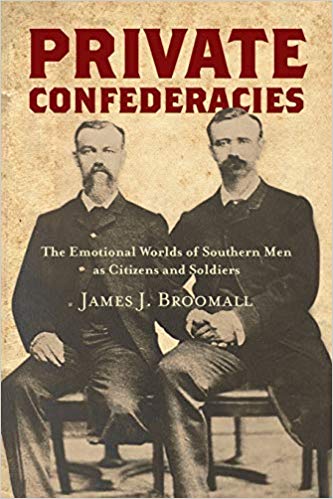George B. McClellan has now received his day in court. In five chapters detailing Little Mac’s conduct during the 1862 Maryland Campaign, Steven Stotelmyer takes up the defense attorney’s pen to rebut the general’s detractors. Almost unrecognizable from the traditional Young Napoleon, Stotelmyer’s McClellan is a resolute leader confronting a cabal of persecutors in Washington while bedeviled by a lackluster cadre of subordinates. Few works since Warren Hassler’s George B. McClellan: Shield of the Union have cast Little Mac’s generalship in a more iconoclastic light.
Stotelmyer’s case for McClellan tallies a series of controversial arguments. First, the famous “Lost Orders” discovered by Union troops outside Frederick, Maryland, on September 13, 1862, did not spur a dramatic reversal in the army’s operations because Union troops were already in rapid motion. Second, Lincoln’s expectation of a battle of annihilation against Lee contradicted all mid-nineteenth century strategic reality. Third, the Battle of South Mountain, not Antietam, was the real turning point of the campaign (and possibly the war) because McClellan’s aggressiveness blunted Lee’s Maryland offensive. Fourth, McClellan’s fledgling Army of the Potomac had no substantial superiority of numbers along the banks of the Antietam. Fifth, the “Battle of Antietam” actually took place over three days of near-continuous combat, since September 16 and 18 featured at least some artillery fire and skirmishing. Sixth, McClellan promptly employed all his reserves from the Fifth and Sixth Corps on September 17, since any troops who came under artillery and small arms fire were technically no longer reserves. And finally, the general’s post-Antietam halt resulted from a genuine conspiracy on the part of Secretary of War Edwin Stanton to withhold supplies from the Army of the Potomac and embarrass Little Mac.
In assessing the general’s overall performance as Army of the Potomac commander, Stotelmyer proclaims McClellan succeeded in the Maryland Campaign because he fulfilled his three stated campaign objectives: 1) defend Washington and Baltimore; 2) prevent an invasion of Pennsylvania; and 3) force Lee’s retreat into Virginia. McClellan identified these three goals in his private, post-battle “spin,” however, something Stotelmyer acknowledges the general’s detractors might find problematic but that he maintains perfectly represent the Young Napoleon’s mid-campaign mindset.
In making this controversial case, Stotelmyer takes numerous historians to task. He objects to Stephen Sears’ highly critical analysis of McClellan, accuses James M. McPherson of “rank speculation,” and chastises Joseph Glatthaar for musing on Little Mac’s psychological state. His own source base includes published and private correspondence buttressed by numerous previous studies of the controversial Potomac commander. Indeed, for all the book’s protestations that Little Mac suffers from a dearth of defenders, Stotelmyer’s work stands as merely the latest in a long tradition of resuscitating McClellan’s reputation—Warren Hassler, Joseph Harsh, Thomas Rowland, Ethan Rafuse, Thomas Clemens, and Dan Vermilya have all offered their expertise to that effort over the years.
At its best, Too Useful to Sacrifice is the sort of book that keeps historians on their toes by forcing us to reexamine long-held assumptions. A worthwhile addition to Civil War literature is one that forces historians into the archives to move the debate forward, and in some instances Stotelmyer has done that. His take on the established September 13 timeline of the Lost Order asks important questions, for example, and his broader attention to the lack of overall cohesion in the Army of the Potomac serves the book well.
In two hundred fifty pages of text, however, the reader will find scarcely one instance when Stotelmyer’s McClellan commits an error. The general’s subordinates may have been overly cautious, but they feared failing in the wake of John Pope’s dangerous, politicized allegations. The Union column struggled to move quickly on September 13, but the road system in Frederick rendered it impossible. If McClellan’s operational plans misfired on September 14, it’s because General-in-Chief Henry Halleck saddled the general with protecting Harpers Ferry. If Little Mac hesitated to assault on September 15 and 16, we should credit him with sensible caution about Lee’s strength. The September 17 attacks at Antietam were uncoordinated, but blame lies with Joseph Hooker and Ambrose Burnside. The army suffered from poor discipline and supplies in October 1862, but this could only have been the result of a nefarious political cabal in the administration. Finally, the Union failures after Little Mac’s dismissal came because the nation was deprived of his abilities on the eve of what “might have been…a decisive military victory” (246). In fact, Stotelmyer insists, McClellan overcame daunting organizational, tactical, and logistical barriers at virtually every turn in the campaign. Speaking of the general’s aggressiveness on September 14, for instance, the author declares, “Without Maj. Gen. George B. McClellan’s leadership there would have been no battle of South Mountain and, perhaps, no United States as we know it” (47). His visit to troops on the front lines on September 15 showed his gallant leadership style: “No wonder his men cheered him” (142).
At its core, Too Useful to Sacrifice trades one trope for another—McClellan the Villain becomes McClellan the Victim, a potentially transformative leader frustrated by political conspirators and incompetents. In seeking to defend Little Mac, the author suppresses not only the general’s shortcomings but also the complexity that makes him so fascinating. Ultimately, for all the extenuating circumstances Stotelmyer points out, the procession of subordinate missteps and intelligence failures that plagued the Army of the Potomac under Little Mac’s command must at some point reflect upon him. Furthermore, while Stotelmyer raises some reasonable points, a full historical assessment of the Maryland Campaign must avoid considering Union combat effectiveness—and indeed Little Mac’s own generalship—in isolation from the enemy. Even shorn of its later Lost Cause veneer, the qualitative superiority of Lee’s Army of Northern Virginia in September 1862 forces an honest reader to ask, as Lincoln did of McClellan in October 1862, why Little Mac’s troops could never manage to replicate what the enemy was “constantly” accomplishing.
Zachery A. Fry teaches history at the US Army Command & General Staff College. His first book, a history of political culture in the Army of the Potomac, is forthcoming with the University of North Carolina Press.
Related topics: George McClellan





